A Glimmer of Hope for Animal Welfare in Europe – Slow Food International
2020 was an encouraging year for the future of animal welfare in Europe. From animal welfare labelling to live transport and alternatives to caging, the European Union has taken important steps towards improving the way farm animals are treated and the conditions they live in. But the fight is far from over.
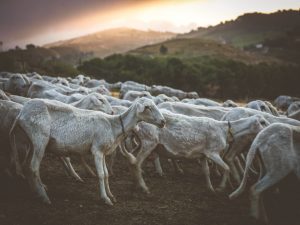
Last month, good news for animal welfare came from across the Channel: the UK’s environment minister, George Eustice, announced England and Wales’ plan to ban the export of live animals for slaughter and fattening. They would become the first countries in Europe to end this practice.
Animals pay a harsh price in the current system as factory farms reduce animals to mere machines and commodities. They are packed into tight cages or confined to small spaces where they spend a short but painful life. Living in these conditions makes animals more prone to diseases. In many intensive farms they are therefore routinely injected with vaccines and antibiotics, posing a risk to those who consume their meat. The EU livestock sector consumes more antibiotics than the human medical sector, and contributes to the spread of antimicrobial resistance, which accounts for 33,000 deaths per year in the EU.
What is more, intensive livestock production also threatens environmental sustainability, human health and the livelihood of small-scale farmers and rural communities.
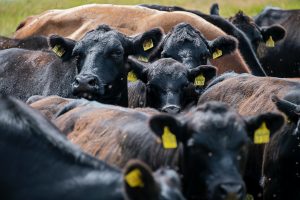
With overall high meat demand and export in Europe, it has become necessary to confront the consequences and negative externalities of intensive animal farming in order to safeguard the health of citizens and the environment, and guarantee that small-scale farmers can thrive in their activities while ensuring that animal welfare is respected.
The European Union has been active on this front in 2020, with encouraging developments in animal welfare labelling, caging, and transport. Let’s rewind!
Opening the Door to Caged-Free Farm Animals
Over the years, EU consumers have growingly expressed their wish to be better informed on the farming conditions of animals and have shown strong resolve to end mistreating practices. This change in Europeans’ mentalities is well reflected by the immense success of the European Citizens Initiative “End the Cage Age”, which collected more than 1.400.000 signatures across Europe, bringing a clear message to European Institutions: it is time to abolish the use of cages in animal farming across Europe.
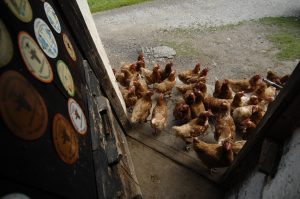
To this end, the European Parliament requested a study on the topic, to assess the feasibility of such demand. It focuses mainly on alternatives to cage housing in laying hens and in sows, and its conclusions are promising: “Cage-free housing has a positive effect on the behavioural freedom and welfare of animals (…) Research shows that cage-free housing is currently possible or will be in the future. A shift towards cage-free housing systems may be achieved by financial and policy measures in the short term and legislation in the long term”.
Towards a European Label for Animal Welfare
We all have the right to know how the food in our plate is produced and where it comes from, yet the food and agriculture industries often make it difficult for us to find out. The lack of a proper labelling system prevents consumers from making conscious food choices and does not properly ‘reward’ farmers that choose more animal-welfare friendly systems.
Following pressure from civil society, the European Commission has taken steps towards more and better animal welfare labelling. As stated in the latest policy brief by the Eurogroup for Animals the state of play of animal welfare labelling in Europe, information on animal welfare does exist, but only for some products like table eggs, and only due to national legislation or private initiatives. Denmark, for instance, has implemented an animal welfare label, and work is in progress in Germany to create a governmental label for pigs.
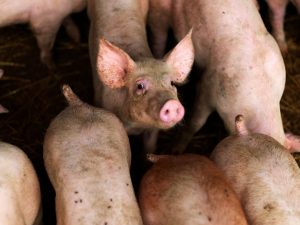
This lack of legislative harmonisation might change in the coming years. In its Farm to Fork Strategy published in May 2020, the EU Commission referred to labelling as “a central instrument to provide consumers high-quality information, regarding the sustainability level of food production, the nutritional value of food items, as well as consumer information related to animal welfare”. On that last point, the Commission announced the enactment of an EU animal welfare label, in order to increase credibility and transparency of foodstuff on EU markets and to enable consumers to make more informed choices.
Business VS Animal Suffering
Every year, millions of animals are transported within the EU and to third countries, for several days in a row for trade purposes, in grueling conditions. Due to highly inadequate transport conditions, many animals sustain serious injuries while others regularly die a torturous death during these journeys. Insufficient loading capacities, lack of suitable equipment for feeding and watering, transport of unfit animals, poorly trained staff, all these shortcomings and many more are responsible for causing immense stress and pain to the transported animals.
In Europe, global live animal export business accounts for an estimated value of $3.3bn, forcing animals to undertake increasingly long journeys across the globe, to countries as far as Uzbekistan, Thailand or Uganda.
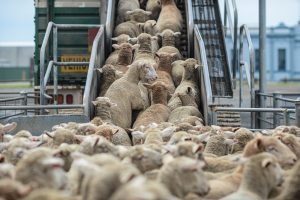
With these facts and numbers in mind, it has become critical for EU lawmakers to act towards stricter regulations on live animal transport. In June the European Parliament voted to establish an inquiry committee to investigate the transport of live animals across and out of the European Union.
The committee will address whether the European Commission has failed to act upon evidence of “serious and systematic” infringements of EU regulations for the protection of exported live animals. MEPs who are critical of live exports have repeatedly asked the committee to consider bans on exports outside the EU and suggested limiting transport times within the EU.
Slow Food and Animal Welfare
For many years, Slow Food has been actively working to promote a holistic approach to food and agriculture. Good animal welfare practices are a fundamental part of this, not only because they respect animals as sentient beings, but also because they benefit farmers, consumers, and the environment.
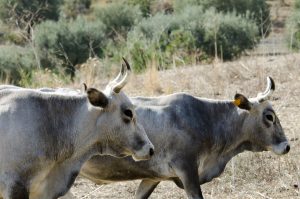
Through its projects Slow Food wants to ensure that the connection between animal welfare, human health, and environmental sustainability is understood by a growing number of people. Slow Food Presidia, for instance, can have a direct impact on the welfare of animals as their production protocols involving livestock already follow Slow Food’s guidelines regarding breeds, diet, reproduction etc.
But education matters just as much. Over the years, Slow Food has developed an extensive network worldwide that has allowed numerous projects in schools and community gardens to see the light of day, thus ensuring that younger generations have the necessary tools to make healthier and more sustainable choices as they grow up. Also, Slow Food has been very active to raise awareness on topics close to its heart, with campaigns such as “Meat the Change”. Launched in January 2020, it aims at encouraging people to eat less and better meat and reflect on the consequences of their food choices.
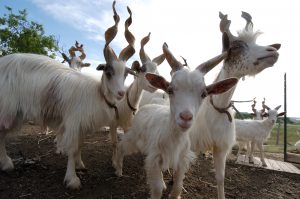
For this same reason, Slow Food has also developed the narrative label project, based on the idea that every product should tell its story. It provides detailed information on the producers, their facilities and production area, the plant variety or animal breed they use, their cultivation or breeding techniques, their processing protocols and the animal welfare provisions in place.
The EU must work towards more coherence on food policies. It is necessary to introduce measures that take into consideration the cost of animal welfare by supporting farmers who voluntary choose to improve their standards beyond those required by law. Slow Food will furthermore strive for the full recognition of animal welfare as an element in future EU strategies on the sustainability of the food system.
Want to know more? Visit our webpage dedicated to animal welfare.
Published at Mon, 18 Jan 2021 11:05:48 +0000




Comments
Loading…